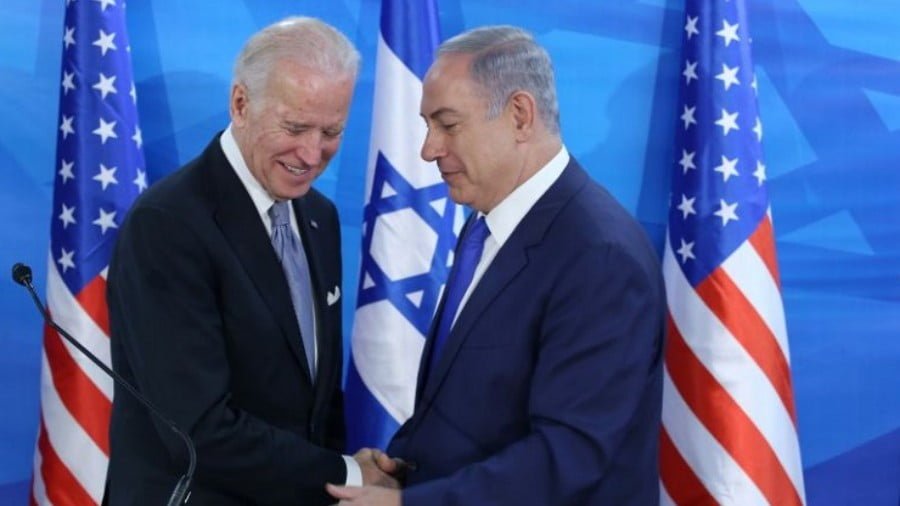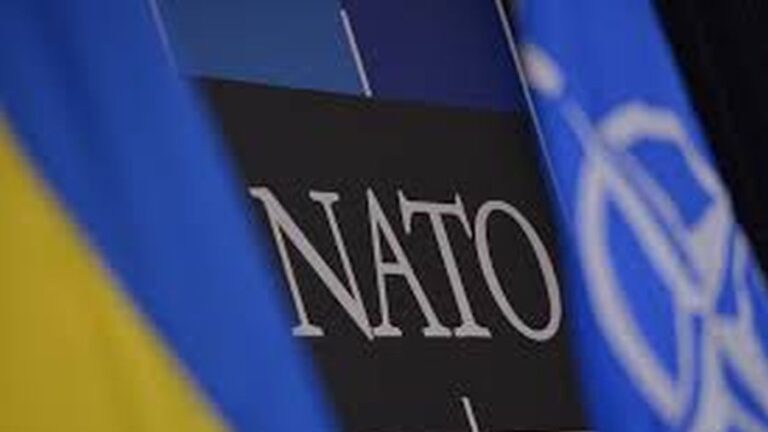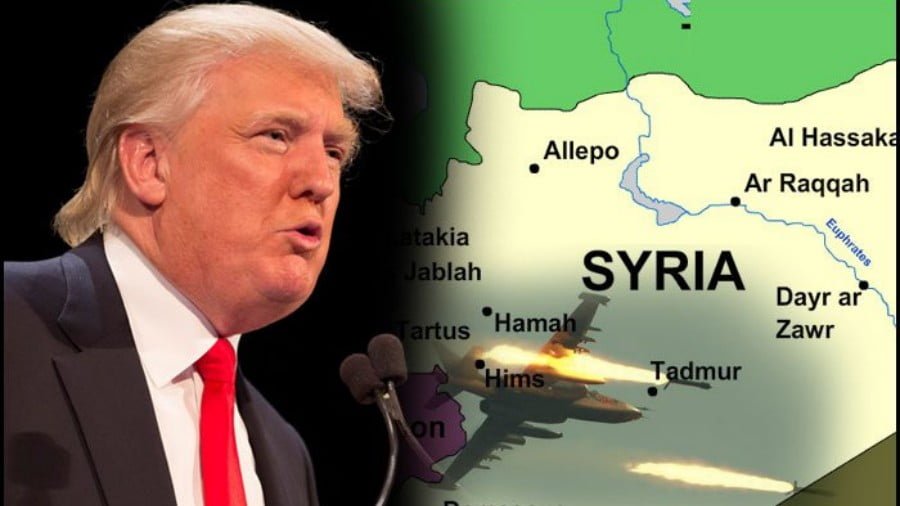Washington’s Game of Chess in the Middle East and How It Will Play Out
Although the legacy of foreign policy has not been easy for Biden, there is no doubt that the problems of the Middle East, one way or another, will remain at the top of his agenda, and there’s many reasons for that. First of all, it is a very strategically advantageous region for manipulating the whole world through energy prices, and as a large market for American weapons it has always attracted the interests of all US elites, regardless of whether they are Democrats or Republicans.
In the upcoming, in the next four years, chess game Washington plays on this regional platform, Biden will certainly have to arrange his pieces in the very near future, adjust the directions of individual attacks of the previous administration, highlighting new intermediate and final goals. As Biden has already stated in his campaign speeches, he intends, among other things, to bring Tehran back to the negotiations table with Washington, to make the inevitable adjustment in relations with Turkish President Recep Tayyip Erdoğan, who has “begun to drift away from the United States.”
Neither will it be easy for the Biden administration to find a path of relations with Israel that would be most beneficial for Washington, or more precisely, a balance between Trump’s openly one-sided pro-Israeli course and the expediency of resuscitating the balanced policy that Obama pursued in this part of the world.
So far, Biden has devoted only a few lines to Middle East policy on his campaign website. They were mostly limited to the traditional promises: “end the perpetual wars in Afghanistan and the Middle East,” bring US troops home, focus only on fighting the terrorist groups Al Qaeda and Daesh (both formations banned in Russia), end American support for the “Saudi-led war in Yemen,” and remain firmly committed to Israel’s security. Finding the most profitable concrete solutions will take a long time for the new presidential administration, because in the tangled web of interests of local and external players in the region, any move could turn into a geopolitical tsunami for every party involved.
In the absence of a decision by Washington, however, the situation in the region, especially within the countries that have joined the Abraham Accords, is ambiguous.
Israel, based on a treaty signed on September 15, 2020, opened its embassy in the United Arab Emirates on January 24. Eitan Na’eh, who has made a remarkable career in the Israeli Foreign Ministry, has been appointed temporary envoy to lead the mission, though a permanent Jewish ambassador will not be appointed until a new Israeli government is formed, since the current transitional government does not have the authority to allow so. In addition to the embassy, the Israeli consulate in Dubai — a major tourist center of the United Arab Emirates — opened on January 26, given the intention of Tel Aviv to increase tourist visits of Israeli citizens to the country. The consulate in Dubai thus became Israel’s second diplomatic mission in that country. At the same time, it is well known that, even before mutual recognition, the two states have maintained informal relations, for quite a long time tacitly cooperating in the defense, military, intelligence, as well as in countering Iran’s nuclear program due to the similarity of the positions of Israel and the UAE on this issue. As a result, the UAE became the third Arab state (after Egypt in 1979 and Jordan in 1994) to sign a normalization agreement with Israel.
Recall that later on, at Washington’s insistence, Bahrain quickly joined the peace agreement with Israel, followed a few months later by Morocco (December 2020) and Sudan (January 2021), and the agreements themselves were called the “Abraham Accords” — in memory of the biblical character, who is considered the spiritual ancestor of all followers of Christianity, Judaism and Islam.
And so on January 26 the Israeli diplomatic mission in Morocco reopened in the capital Rabat, with the arrival of interim envoy David Govrin. This Israeli diplomatic mission was closed about 20 years ago after the suspension of diplomatic relations between the two countries, but Israel retained the building that housed the liaison office. Morocco also kept its diplomatic office in Tel Aviv, which was also closed during the Second Intifada.
Benjamin Netanyahu is also scheduled to make an official visit to the UAE and Bahrain from February 9 to 11 where he intends to meet with Crown Prince Mohammed bin Zayed of the UAE, King Hamad bin Isa Al Khalifa of Bahrain, Crown Prince Salman bin Hamad bin Isa Al Khalifa, and with high ranking officials in Abu Dhabi and Manama.
In addition, as part of intensifying contacts and cooperation with the Abraham Accords signatory countries, Israeli Intelligence Minister Eli Cohen made a brief visit to the Sudanese capital of Khartoum on January 26, where he met with Sudanese President Abdel Fattah al-Burha, Defense Minister Yassin Ibrahim and several Sudanese representatives from the Defense and Intelligence Ministries. A wide range of bilateral cooperation issues were discussed, particularly in the fields of security, intelligence, and economics. During the contacts, the possibility of Israel joining the Red Sea Council, of which Sudan, Egypt and Saudi Arabia are members, was discussed.
However, there has been a mixed response throughout the region to the diplomatic moves to sign the Abraham Accords. In particular, residents of Palestine and Iran accused the countries that signed agreements with Israel of betraying the interests of the Arab people. The President of Algeria, Abdelmadjid Tebboune, commenting on the peace agreements, noted that his country “holds the Palestinian problem in high esteem” and does not support the rush to normalize relations.
The picture within the countries that adhered to the Abraham Accords is also rather complicated. Thus, during discussions on the approval of the agreement, Sudanese Prime Minister Abdallah Hamdok spoke out against the deal. Sadiq al-Mahdi, chairman of the country’s main opposition party, Al-Umma, who is considered one of the most respected politicians there, also condemned the decision of official Khartoum, saying: “This will contribute to the destruction of the peace project in the Middle East and will be a step toward igniting a new war.”
On January 17, dozens of protesters in Sudan burned an Israeli flag during a demonstration against Khartoum’s signing of an agreement to normalize relations with the Jewish state. Demonstrators chanted anti-Israeli slogans and carried placards with inscriptions: “Normalization is treason” and “Normalization is a crime.”
According to analysts, with more and more countries joining the Abraham Accords, not only can the Arab-Israeli confrontation come to naught, but a new alliance can be formed, which, with Tel Aviv taking an active stance, will be directed not against Israel but against another enemy — Iran. In addition, Tel Aviv, for example, will be able to gain access to the island of Socotra, effectively controlled by the UAE, which will seriously complicate Tehran’s support for houthis in Yemen.
It should also be kept in mind that although the UAE, Bahrain, Morocco and Sudan have already signed an agreement to settle relations with Israel, nevertheless the authorities and political forces in these countries have repeatedly stressed their principled position on the subject of the West Bank. At the same time, they stressed that the Abraham Accords made it possible to stop the annexation of Palestinian land to Israel.
For his part, however, Netanyahu has also repeatedly stressed a slightly different position, in particular that the “extension of sovereignty” over these territories is not terminated, but only suspended, noting that the further implementation of this plan will be carried out in coordination with Washington. Netanyahu’s words were confirmed by the fact that the Israeli leadership continues its “settlement policy” despite the recent signing of Abraham Accords: On January 20, it was reported that the authorities had approved a project to build more than 800 housing units in the West Bank. The Palestinian elections scheduled for May 22, will no doubt escalate the tensions on this issue.
In this regard, the Biden administration, which, according to Tel Aviv claims, has already expressed its support for the Abraham Accords, must address many of the critical details of its Middle East policy as soon as possible. Otherwise, the protest fires could erupt in this region in the very near future and switch to the United States.







